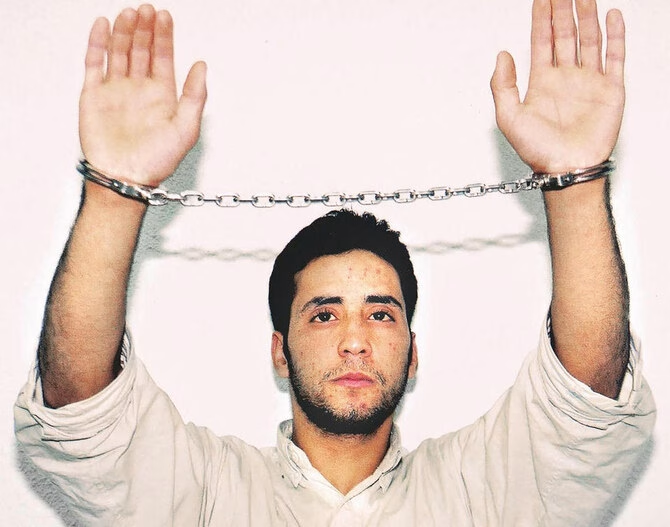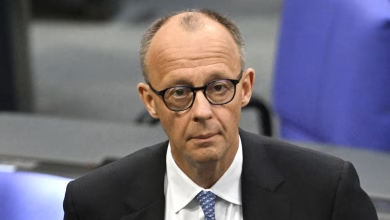The civil defense agency in the Hamas-controlled Gaza Strip confirmed the death of Abdelaziz Salha, who was killed in an Israeli airstrike early Thursday morning. The strike targeted a tent in a displacement camp located in Deir al-Balah, in central Gaza. Salha’s death marks a significant moment in the ongoing conflict between Israel and Palestinian militant groups, as he was previously a key figure associated with a high-profile murder of an Israeli soldier.
Salha was sentenced to life in prison in 2004 for his role in the killing of Israeli soldier Vadim Norzich in Ramallah during the Second Intifada in 2000. This incident was particularly notorious due to its shocking nature and the way it was publicized. An Italian television crew captured the scene, which showed Salha in an upstairs window of the Ramallah police station, waving his blood-stained hands at a crowd. This dramatic imagery became one of the most recognized symbols of the uprising, bringing international attention to the Israeli-Palestinian conflict.
In the same attack that led to Norzich’s death, another Israeli soldier, Yossi Avrahami, was also killed. The incident underscored the intense violence and chaotic atmosphere that characterized the early years of the Second Intifada. Salha’s actions and the circumstances surrounding the attack contributed to his notoriety within the context of the ongoing hostilities between Israelis and Palestinians.
Following his conviction, Salha was released from prison in 2011 as part of a prisoner exchange deal involving Israeli soldier Gilad Shalit, who had been taken hostage by Gaza militants in 2006. Salha was among 1,027 Palestinians released in the exchange, which was hailed as a significant victory for Hamas and other militant groups in Gaza. After his release, he was sent to Gaza, a territory that has since been the focal point of ongoing military and political conflict.
In recent years, Israeli military officials alleged that Salha resumed his involvement in militant activities following his release. They stated that he was engaged in operations linked to Hamas and had continued to pose a threat in the West Bank. The Israeli army issued a statement highlighting that Salha was “involved in Hamas terrorist activity to this day,” further complicating the already tense situation in the region.
The airstrike that resulted in Salha’s death not only signifies a targeted military action by Israel but also reflects the broader context of the conflict. Israel has frequently conducted airstrikes in Gaza as part of its ongoing military operations against Hamas and other militant groups. Such operations are often justified by the Israeli government as necessary for national security, particularly in response to perceived threats from individuals with a history of involvement in terrorism.
Salha’s death may have significant implications for the dynamics of the conflict moving forward. It highlights the persistent cycle of violence and retaliation that characterizes the Israeli-Palestinian conflict, as well as the challenges of achieving lasting peace in a region fraught with historical grievances and ongoing hostilities. As both sides grapple with the consequences of this incident, the situation in Gaza and the West Bank remains precarious, with potential ramifications for future interactions between Israeli forces and Palestinian militants.

